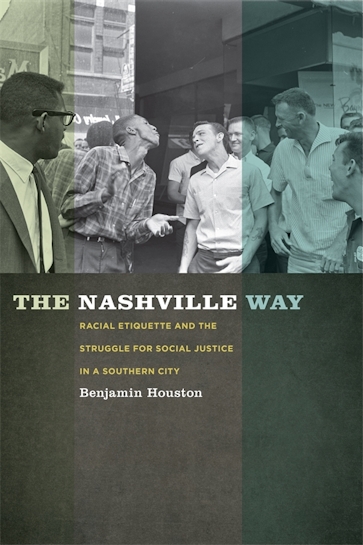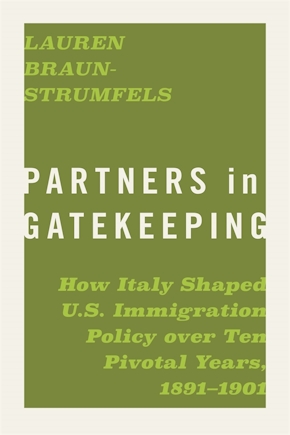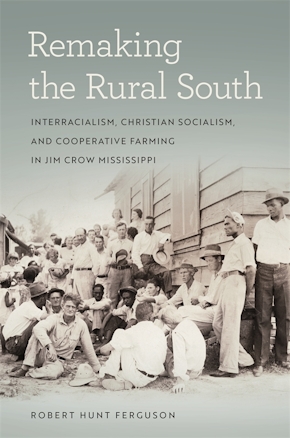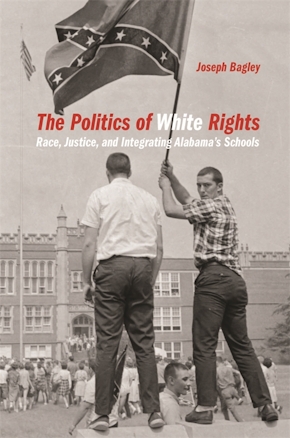The Nashville Way
Racial Etiquette and the Struggle for Social Justice in a Southern City
Title Details
Pages: 344
Illustrations: 10 b&w photos
Trim size: 6.000in x 9.000in
Formats
Paperback
Pub Date: 11/01/2012
ISBN: 9-780-8203-4327-3
List Price: $34.95
Hardcover
Pub Date: 11/01/2012
ISBN: 9-780-8203-4326-6
List Price: $120.95
eBook
Pub Date: 11/01/2012
ISBN: 9-780-8203-4328-0
List Price: $72.95
The Nashville Way
Racial Etiquette and the Struggle for Social Justice in a Southern City
Skip to
- Description
- Reviews
- Awards
Among Nashville’s many slogans, the one that best reflects its emphasis on manners and decorum is the Nashville Way, a phrase coined by boosters to tout what they viewed as the city’s amicable race relations. Benjamin Houston offers the first scholarly book on the history of civil rights in Nashville, providing new insights and critiques of this moderate progressivism for which the city has long been credited.
Civil rights leaders such as John Lewis, James Bevel, Diane Nash, and James Lawson who came into their own in Nashville were devoted to nonviolent direct action, or what Houston calls the “black Nashville Way.” Through the dramatic story of Nashville’s 1960 lunch counter sit-ins, Houston shows how these activists used nonviolence to disrupt the coercive script of day-to-day race relations. Nonviolence brought the threat of its opposite—white violence— into stark contrast, revealing that the Nashville Way was actually built on a complex relationship between etiquette and brute force. Houston goes on to detail how racial etiquette forged in the era of Jim Crow was updated in the civil rights era. Combined with this updated racial etiquette, deeper structural forces of politics and urban renewal dictate racial realities to this day.
In The Nashville Way, Houston shows that white power was surprisingly adaptable. But the black Nashville Way also proved resilient as it was embraced by thousands of activists who continued to fight battles over schools, highway construction, and economic justice even after most Americans shifted their focus to southern hotspots like Birmingham and Memphis.
The civil rights saga of Nashville in the decades following World War II is a complicated and bittersweet story of struggle and resistance, change and continuity, success and disappointment; and Houston captures it all with a rich narrative of black and white southerners engaged in a historical drama of national and even international importance. The first book to offer a comprehensive and balanced study of the city’s distinctive racial and movement cultures, The Nashville Way fills an enormous gap in civil rights and southern historiography.
—Raymond Arsenault, author of Freedom Riders: 1961 and the Struggle for Racial Justice
Houston’s book details the particular nature of the Nashville community and the way civil rights unfolded there but also adds to our understanding of the civil rights movement more broadly. It is engagingly written, even gripping at times, and its audience should include the educated bookbuying public in and around Nashville.
—Tracy E. K’Meyer, author of Civil Rights in the Gateway to the South: Louisville, Kentucky, 1945–1980
Any interested in black power and white response in the South will find [The Nashville Way] a specific title, perfect for college-level social issues holdings.
—Midwest Book Review
The Nashville Way, the first scholarly work and the first history of civil rights in Nashville since David Halberstam's The Children, fills a gap in civil rights and southern historiography. It should be of interest to anyone interested in the history of Nashville and the African American struggle for racial justice during the movement for civil rights.
—Linda T. Wynn, The Courier
Houston has effectively revealed the turmoil and struggle behind the veil of racial etiquette and gentility in this southern city.
—Victoria Wolcott, American Historical Review
Nashville, Tennessee had perhaps the most fully formed of the student-centered civil rights movements that emerged in the early 1960s. Houston tells the story of this movement in substantial depth in this fine monograph.
—D. C. Catsam, Choice
Winner
Arthur Miller Institute First Book Prize, Univ. of East Anglia and British Assoc. for Amer. Studies
Winner
Tennessee History Book Award, Tennessee Library Assoc. and Tennessee Hist. Commission



